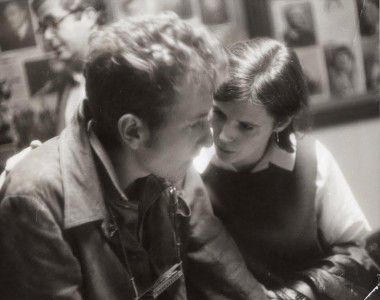
While a common adage jokes that, “if you remember the 60’s, you weren’t there,” few today, both young and old, recognize the influence of the Cambridge, Massachusetts folk scene on the musical zeitgeist of the 1960’s. While Greenwich Village and San Francisco enjoy fame as cornucopias of creativity that preserved folk Americana, many who fertilized these more Western spots actually sprouted on the banks of the Charles River.
Also thriving along the banks of the Charles are filmmakers Todd Kwait and Rob Stegman, two BU graduates who recently premiered For The Love of the Music: The Club 47 Folk Revival, a documentary aimed to illuminate the imprint of the Cambridge folk scene – specifically Club 47 – on the music and counterculture of the 1960’s. Originally established as a jazz club in 1958 by college graduates Joyce Kalina and Paula Kelley, Club 47 soon became a folk mecca that helped to launch the careers of Joan Baez, Tom Rush, and Judy Collins.
Friends and collaborators since their time on Commonwealth Ave, Kwait and Stegman hold long careers in television and contract videography. For the Love, however, is their first collaborative feature film and their first featured at the Boston International Film Festival, where it premiered this past week.
For the Love includes an impressive collection of material. Compiled over two years by Kwait and Stegman, archived performances, photographs, and interviews fill a majority of the documentary. The remarkable breadth of this archive portfolio was made possible through donations by the founder of the New England Folk Music Archives, Betsy Siggins, a establishing member of Club 47 and the Founding Director of the New England Folk Music Archives.
Siggins – who attended BU but never graduated – appears often in the film and is one of many Club 47 veterans featured in For the Love’s interview showcase. From the voices of club owners like Siggins, to folk historians and performers like Tom Rush, Joan Baez, and Taj Mahal, For the Love meticulously combs the entire chronology of Club 47. Beyond artist profiles, For the Love thoroughly paints the culture of Club 47 and even explores the tenor of the demographic of its attendees.
That said, For the Love’s enthusiasm for Club 47 characters and anecdotes becomes overwhelming. The increasingly extensive ensemble cast of Club 47 blur together by midway through the film, which confuses and eventually alienates the audience. Perhaps even more perplexing, however, is that For the Love skimps on significant screen time for its most notable stars: Joan Baez, Judy Collins, and Taj Mahal. While the purpose of For the Love is clearly to illuminate the oft-shadowed influences of folk and 60’s pop music, many will come to For the Love to see their favorites– and will be disappointed.
This same voracity pervades the anecdotes included in For the Love as each featured player seems to introduce his or her own narrative or tangential musings. While the film maintains somewhat of a linear direction in following Club 47’s chronology, its blend of anecdotes throws the film’s thesis – or even presence of one – into question.
Documentaries, while grounded in reality, need simplistic narrative arcs before unleashing of facts and anecdotes as it is narratives that establish audience interest. For the Love could have benefited from such an addition, whether by following Betsey Siggins’ story throughout or charting the changing Cambridge residents’ relationships to folk, rather than simply following chronology.
Despite its flaws, For the Love remains important because of its individuality. Few documentaries on folk are produced today and For the Love is the only to date to comprehensively report on the Cambridge folk scene that became so integral to popular music.
And interestingly enough, For the Love released at the perfect time to engage Boston University students. Folk is once again – and probably for the first time since Baez’s BU tenure – relevant on campus. Folk’s latest reincarnation scores the culture of Allston hootenannies. Strums from Comm Ave. iPod playlists march to the same rhythm of the Charles. Sometimes, one can hear echoes of Baez off the cement walls of BU Central.
With folk as their soundtrack, BU students can appreciate For the Love more than was ever possible before.
This is an account occasionally used by the Daily Free Press editors to post archived posts from previous iterations of the site or otherwise for special circumstance publications. See authorship info on the byline at the top of the page.



